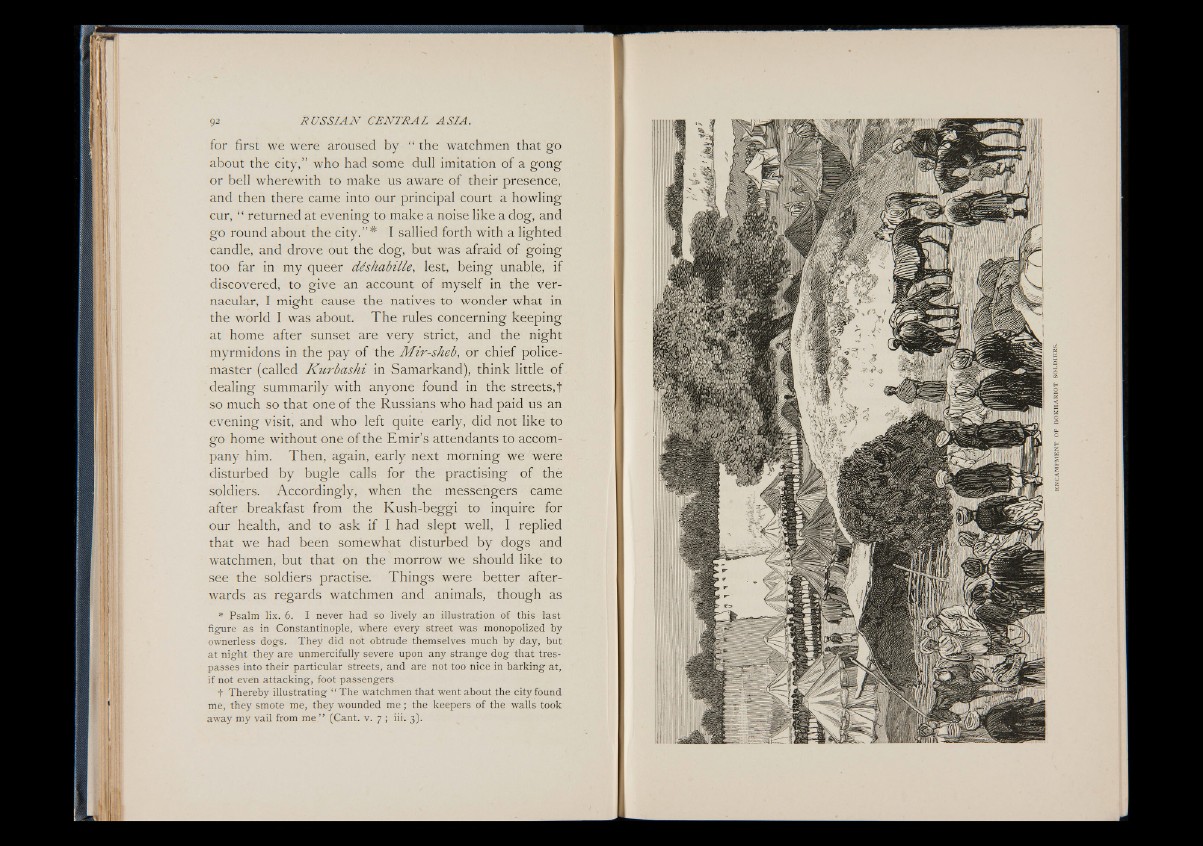
for first we were aroused by “ the watchmen that go
about the city,” who had some dull imitation of a gong
or bell wherewith to make us aware of their presence,
and then there came into our principal court a howling
cur, “ returned at evening to make a noise like a dog, and
go round about the city.” * I sallied forth with a lighted
candle, and drove out the dog, but was afraid of going
too far in my queer déshabille, lest, being unable, if
discovered, to give an account of myself in the vernacular,
I might cause the natives to wonder what in
the world I was about. The rules concerning keeping
at home after sunset are very strict, and the night
myrmidons in the pay of the Mir-sheb, or chief police-
master (called Kurbashi in Samarkand), think little of
dealing summarily with anyone found in the streets,t
so much so that one of the Russians who had paid us an
evening visit, and who left quite early, did not like to
pfo home without one of the Emir’s attendants to accom-
pany him. Then, again, early next morning we were
disturbed by bugle calls for the practising of thè
soldiers. Accordingly, when the messengers came
after breakfast from the Kush-beggi to inquire for
our health, and to ask if I had slept well, I replied
that we had been somewhat disturbed by dogs and
watchmen, but that on the morrow we should like to
see the soldiers practise. Things were better afterwards
as regards watchmen and animals, though as
* Psalm lix. 6. I never had so lively an illustration of this last
figure as in Constantinople, where every street was monopolized by
ownerless dogs. They did not obtrude themselves much by day, but
at night they are unmercifully severe upon any strange dog that trespasses
into their particular streets, and are not too nice in barking at,
if not even attacking, foot passengers
f Thereby illustrating “ The watchmen that went about the city found
me, they smote me, they wounded me ; the keepers of the walls took
away my vail from me ” (Cant. v. 7 ; iii. 3).